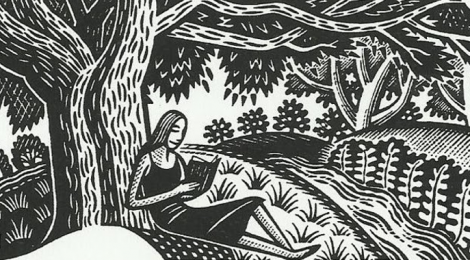
The Commons in Pre-Modern Thought
Article from Organise! magazine issue 86 [free PDF download]
Most anarchists would probably agree that the concept of commons goes back at least to the first time that the commons were annexed and lost to people who had otherwise relied upon them. There were certainly uprisings by peasants against lords in the Middle Ages over access to commons. The first recorded was in the late 900s in response to the annexation by noble landlords of rivers and woods in Normandy. Sometimes the landlords were monks, as in the case of an uprising at Wellow in Nottinghamshire against Rufford Abbey.
Anarchists find the rare occasions when such movements leave a record of their ideas compelling, and have written about them often. The Poll Tax rebels in 1381 vocalised tensions over commons, as well opposition to serfdom and unfair taxation. In radical movements of the Civil Wars period such as the Diggers, we even identify antecedents of anarchism and communism, so radical were the demands concerning access to land. These pre-modern movements typically appealed to higher authority, usually to an idealised form of monarchy which would protect the commons, and almost always to God. They can only be partially understood as reflecting class struggle.
However, the concept of commons is also reflected favourably in much elite philosophy and theology going back into the Classical era, as being the original and natural state lived in by the first humans, and what nature intended. Indeed, the annexing and appropriation of land and resources reflected an unfortunate and even debased state of affairs, which gave rise also borders and war. Again, this analysis might appeal to anarchists. But before we get too excited, we should note that few if any of these elite thinkers thought that the common life could be returned to. It was irretrievable, and people should get on with the job of acquiring and restricting access to land and moveable property (and we should highlight that this often meant women and slaves, otherwise absent from the discourse).
Nonetheless, philosophical ideas about commons and why and how they were lost are still interesting to anarchist communists as people who reflect on the different ways in which human society could be organised. The following is a survey of some pre-modern and pre-capitalist thought on commons.
The Classical World
The mathematician Pythagoras (c. 570-c. 495 BCE) is credited with stating that “Everything is shared between friends”, and there is evidence that joining the Pythagorean community involved a provisional surrender of personal property into a communal fund. Plato (424/423 – 348/347 BCE) set out how a larger scale idealised polity might operate. In his Republic, the citizens of the fictional city state Kalipolis recognise that property inevitably corrupts, and so those administering laws have none of their own. But Plato’s student Aristotle (384–322 BCE) loathed these ideas and misrepresented Plato, in order to undermine him. He said that Plato meant to apply lack of personal property to the entire community. Significantly, this reading of Plato extended into the Middle Ages, as we shall see, along with Aristotle’s counter position, that property was good because it allowed you to be ‘generous to friends, companions and guests’.
A key theme of Roman thought is discussion of what commons and property meant in the state of nature and since. To Cicero (106 – 43 BCE), “one should treat common goods as common and private ones as one’s own. (But) no property is private by nature, rather by occupation, or by law, by settlement, by agreement or lot…because proprietorship develops over what used to be by nature common, every proprietor may keep what has fallen to his lot”. Virgil (70 – 19 BCE) wrote of the original state, “it was not even right to mark the land or portion it with boundaries; all need was met in common, and Earth yielded everything of herself, more freely, when none begged for her gifts”. Seneca (54 BCE – c. 39 CE) agreed, but observed that this was “before avarice and luxury had broken the bonds that held mortals together, and they, abandoning their communal existence, had separated and turned to plunder”. And because the clock could not be turned back, you just had to make the best of it; Seneca was famously wealthy. Nerva (30 – 98 CE) observed that the ‘natural law’ concerning property survived only in things not yet exploited, i.e. “taken on land, sea or in the air” but that these then “become the property of those who first take possession of them”. These rights of ‘first occupation’ would later prove fundamental to discussion of commons.
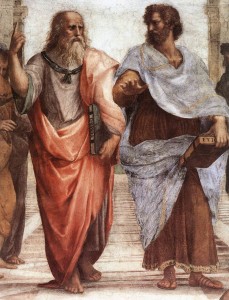
Early Christian Thought
A major influence on pre-modern thought was of course what people understood the first Christian community to have been like. The Christians at Jerusalem in the Acts of the Apostles were, “of one heart and one soul. Neither did anyone say that aught of the things which he possessed was his own: but all things were common unto them… Neither was there any one needy among them. For as many as were owners of lands or houses sold them and brought the price of the things they sold, and laid it down before the feet of the apostles. And distribution was made to everyone, according as he had need”.
To some people this model of common living was thought to be applicable to wider society, once Christianity became the dominant faith around the Mediterranean. Basil of Caesarea (329 – 79 CE) and Ambrose of Milan (c. 329/30 – 397 CE) considered even first occupation to have been a usurpation. What should now be done to put things right, relates to a Christian doctrine solidifying at the same time: Charity. In On Duties Ambrose says, “Nothing commends the Christian soul so much as mercy. First and foremost, it must be shown towards the poor: you should treat nature’s produce as a common possession; it is all the fruits of the ground, brought forth for the benefit of all alike”. Basil wrote, “Where did you get (your things) from…? It is as if someone catching a show in the theatre were to stop other people from coming in, in the belief that what was put on in public for everyone’s enjoyment was his property. That’s the rich for you. They get first hands on common property and make it theirs because they got it first”, and “If each person would only take for themselves what would meet their own needs and then relinquish what was left over to someone in need, no one would be rich, no one poor, no one in need…The bread you hold onto belongs to the hungry person.”
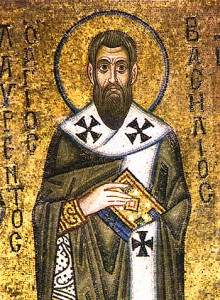
The Medieval Centuries
The emphasis on charity was so significant that it accounts for the arrested development of the Classical concept of a right to property in the medieval world. The twelfth-century lawyer Gratian synthesised Plato, the New Testament and the doctrine of charity, saying, “All men ought to have the use in common of all that is in this world… By the Law of Nature everything is shared by everyone….that polity is said to be most justly ordered in which each person does not know his own attachments… This is believed to have been observed not only by those of whom it is written: Among the multitude of believers there was one heart and one soul…It is through iniquity that one thing came to be called one man’s and another thing another’s…A man who keeps more for himself than he needs is guilty of theft…The bread that you hold back belongs to the needy…When a person is dying of hunger, necessity excuses theft”.
Gratian was not alone in the Middle Ages in considering appropriation of food permissible to the hungry. The right to life was more important than the right to property of someone holding on to surplus. The lawyer Hugh of Pisa (d. 1210) considered that the starving person would not be guilty of theft because they could reasonably assume that a property owner would grant them food. Hostiensis (d. 1217) said, “He who suffers from dire necessity seems to be making use of his right rather than planning a theft”. Significantly, however, the medieval goal was not the eradication of poverty. On the contrary, Jesus had said, “the poor will always be with you”. Indeed, charity was important not least because alms-giving was a means to Salvation. As such, it was essential for most people to have property, some of which they should share in common. Thus John of Salisbury (c. 1120 – 1180) had synthesised Aristotle and Acts, saying, “Virtue lays it down that all the property of friends should be shared between them…who doubts that he ought to share his goods with those who are of one single mind with him…? It is this which unites men’s souls in the bond of charity”.
We should note at this point that the development of charity as a way of denying commons did not go unchallenged in the Middle Ages. In c.1000, the monk Héribert of Périgord warned of certain religious ‘heretics’ that “not only do they refuse money, but the funds they possess, they put in common… (and) they say alms are worthless, for since there should be no property, whence can alms legitimately come?” Variations on this letter were produced in the twelfth century. We hear again of people rejecting alms coming from property, which “no one should possess”, and again, “charity is a useless act because no one should possess the property from which alms can be given…” The question of commons was soon addressed alongside the marginal belief that Christians should have no property at all, in common or otherwise, but should beg. This was because commons had been appropriated by the monastic orders. Their members were not allowed to own anything at all personally, but nonetheless often owned a great deal ‘commonly’ and lived in luxury as a result. In 1143 or 4 the monk Eberwin of Steinfeld at Cologne asked Abbot Bernard of Clairvaux for advice concerning heretics who historians have come to call Cathars. He says they considered themselves, “The true imitators of the apostolic life…possessing no house, or lands, or anything of their own, even as Christ had no property, nor allowed His disciples the right of possession”. They said to monks, “You, although owning nothing of [your] own and holding everything in common, nevertheless possess all these things”. In the 1170s the chronicler Roger of Howden noted such concepts circulating at Toulouse. Around the same time at Lyon Waldensians also went further than the common life and gave everything they had to the poor, whose ranks they now joined, and Francis of Assisi followed suit in the early 1200s. In the thirteenth and fourteenth centuries, similar ideas were held by other radical Christian movements like beguines, the Spiritual Franciscans and the Fraticelli. A fair few people were burned at the stake as a result. But whilst our sympathies might lie with the persecuted, it is important to remember that they were in fact advocating a brand of religious fundamentalism and a return to early Christian values, not a move towards egalitarianism.
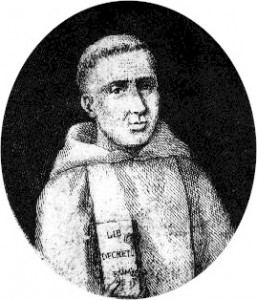
The Renaissance
In the later Middle Ages Classical ideas were returned to both more idealistically and more realistically. In the former category, the Byzantine philosopher Gemistus Plethon (1355 – c.1450) advocated social reform in the Mistra region, so that “all the land shall be the common property of all its inhabitants, as perhaps it is by nature, and that no man should claim any part as his private property. Every man who wishes to do so should be allowed to plant a crop wherever he will, to erect a house, and to plough as much land as he wishes and is able to plough”. This would not be taken advantage of because the farmer must keep land actively under cultivation and render one third of its produce to the wider community. Other writers liked commons as an idea too, but did not consider it possible. Marsilio Ficino (1433 – 1499) said of Plato that “because of his understanding that laws dividing property into private portions brought mankind no benefit over time – indeed things were getting daily worse – he was not wrong to focus instead on rules of friendship, so that once division and the cause of division and misery were more removed we could achieve concord, oneness and happiness”. But on the actual realisation of Plato’s vision, he wrote, “it can only be brought into being when philosophers are kings, and that until then there will be no respite from evil”.
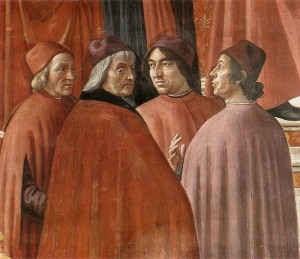
The Early-Modern Period
Logically, at some point in early human history, commons had ceased to be common. If this was not by a just process of some sort, in which everyone had had a say, then what did this say about the legality of possession in subsequent generations? The original partition and appropriation by individuals needed to be both explained and justified by philosophers. This became an urgent issue because of the new occupation of lands where Europeans had not lived before. They wanted to take commons from their first occupants. Some important philosophical questions had to be answered, for example:
- Who said you could do that?
Hugo Grotius (1583 – 1645) and Samuel Pufendorf (1632 – 1694) concluded that there must have been a mutual agreement amongst the first peoples to divide up property. To Grotius, the state of nature must have proven too basic and uncomfortable to be desirable for long, and too impractical once human numbers expanded. So, said Pufendorf, humans established separate dominium over things by a locally agreed pact. After that, property law had to follow because, for example, if the fruits of a tree had been selected by someone for picking when they were ripe, something had to stop others getting in there first. John Locke (1632 – 1704) even asserted that “all the men in the world at one instant of time” must have consented to the division and acquisition of property.
- What about all my hard work?
Locke’s reasoning doesn’t actually require such a pact to have been made, however. His was a multi-layered justification. He argued, “He who is nourished by the… apples he gathered from the trees in the wood… has certainly appropriated them to himself. Nobody can deny that the nourishment is his…(or can say that) he had no right to those apples thus appropriated, (just) because he has not the consent of all mankind to make them his”. Furthermore, “whatsoever …he removes out of the state that nature hath provided and left it in, he hath mixed his labour with, and joined something annexed to it,that excluded the common right of other men”. God, after all, did not give Adam and Eve the bounty of nature to waste, but to use.
In contradiction, Rousseau (1712-78) argued almost what an anarchist communist might that if you argue that you earned the plot by my labour, we can reply: “who set the boundaries for you?” Rousseau blamed agriculture for the origins of the problem because it entailed division and gave the fruits to its cultivator alone, saying “society and laws gave the weak new fetters and the rich new forces [and] forever fixed the law of property and inequality [and] transformed a skilful usurpation into an irrevocable right”. He asked, “How many crimes, wars, murders, how many miseries and horrors mankind would have been spared by him who, pulling up the stakes or filling in the ditch, had cried out to his kind: …You are lost if you forget that the fruits are everyone’s and the Earth no one’s”.
- Commons, or no one’s?
In the ideal state, had commons been no one’s, or everyone’s? In other words, did first occupants collectively own everything they used, or use things that nobody owned? This is not a semantical problem; they do not amount to the same thing when considered in a context where real ‘first occupants’, rather than imagined historical ones, were being inconveniently encountered by European settlers. Indeed, they were often living without land divisions or private goods. Didn’t they have the right to the land they occupied commonly? If they didn’t own it, then No. But if they held it together, then Yes.
This situation perhaps provides the background for Locke’s reasoning that improving land through annexation and labour was what God preferred humans to do: Even if first peoples did ‘own’ the land they occupied, they were wasting it. Thomas More’s Utopia (1516) provided a model. In it, a group of people set out to found a new and ideal society making “the land yield an abundance for all”. But More’s ‘Utopians’ are not first occupants. If the people already occupying land which they wanted to settle and improve, did not want to join in, the Utopians, More reasoned, must drive them off. If they resist, should make war on them, because “it is perfectly justifiable to make war on people who leave their land idle and waste, yet forbid the use of it to others who, by the law of nature, ought to be supported by it”.
Herein lies a key but unproven assumption behind the ‘tragedy of the commons’; whether commons are ‘no one’s’ or ‘everyone’s’, they will not be used or looked after as well as if someone had a unique interest in them. So the earliest humans and the first peoples overseas had no automatic rights to commons after all. As such, the ‘tragedy of the commons’ is rooted in a calculated pessimism about what can be achieved by humanity consciously acting together to improve and manage sustainably what lies all around us.
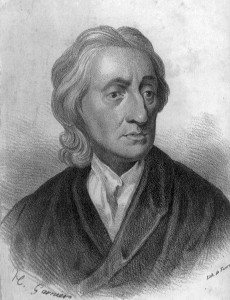

Social Media